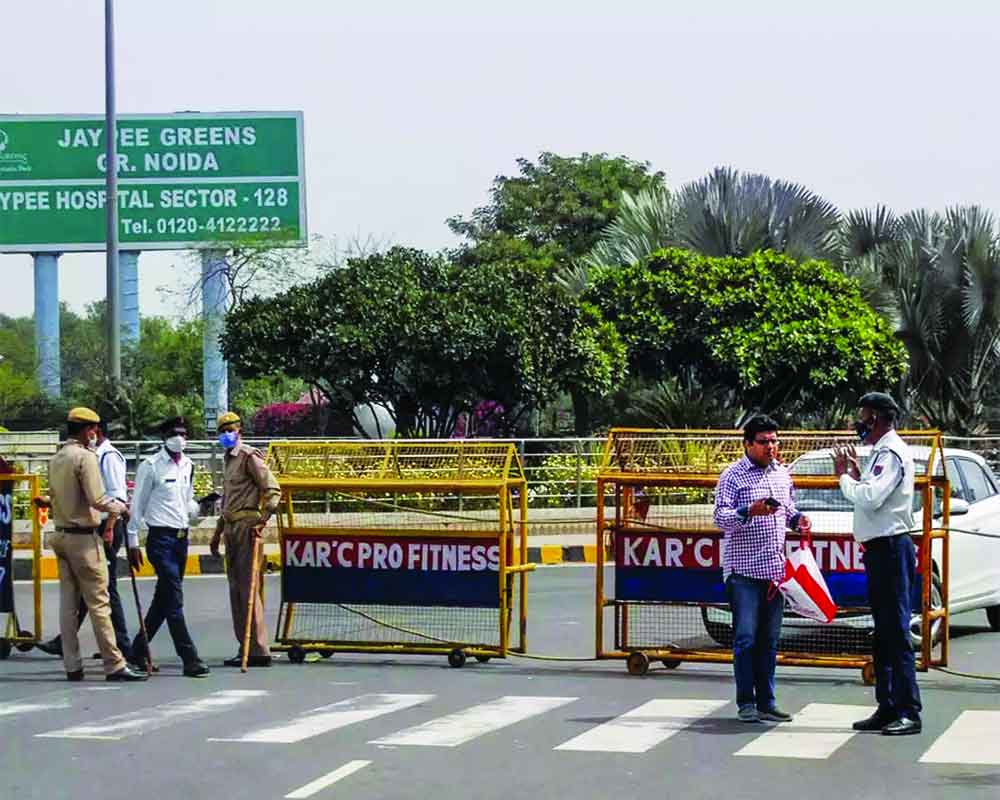During the last 100 years, the country suffered many epidemics and wars but never closed down its establishments
India must learn to be in a working mode during this second wave of the pandemic and not lock itself down repeatedly. After the severe productivity, jobs and economic losses last year, it should have evolved a protocol to restore normal working conditions. The present wave has come at a time when the International Monetary Fund has predicted a possible 12.5 per cent growth in 2022 for the country. A second erratic closure may throw a spanner in the works.
During the last 100 years the country has suffered many epidemics but never closed down its establishments. During the difficult times, all individuals and organisations came together to strive and restore normalcy. The Surat plague in the mid-1990s was also dealt with like that and the city did not shut its business activities. Even though nine months have passed after the unlocking process started, most industries, including education, tourism, travel and even Government offices have not gone back to normal.
The direct and indirect job losses are hitting not only the economy but also the social fabric and family lives. Amid the minus 23.9 per cent fall in the Gross Domestic Product (GDP) during the lockdown and speculation by national and international organisations about the country’s growth; another bout of closures is hitting economic activities.
The nationwide sudden lockdown on March 25 last year led to 10.9 million jobs being lost and has been termed the worst-ever year for the job market. Though there is no centralised data available for how many jobs were created during July-December 2020, Human Resource (HR) consultants estimate that one million jobs were added during this period. Now many of these jobs, most of them in the informal sector, are threatened again.
Many companies like Parle Products, Tata Motors, Mahindra & Mahindra, Ceat and Axis Bank have largely gone back to the Work From Home (WFH) format for corporate employees. Many others like ITC, Samsung, RPG, Dabur, Haier, Vedanta, Vivo and Panasonic have issued new guidelines for the workers.
According to the Centre for Monitoring Indian Economy, about 12 million additional people would have got jobs from the beginning of this year — the highest since March 2020 — but the current lockdowns can make many people lose their jobs again.
Banks are fretting over another spike in defaults and credit quality and the manufacturing activity is at its lowest pace in seven months restricted by the COVID-19 pandemic. The curbs imposed almost all over the country and the beginning of a second wave of exodus of migrant workers back to their hometowns could dent manufacturing, core sector activities, supply of goods and services and the overall demand, even further.
The Investment Information and Credit Rating Agency says that bad loans of Indian banks could rise to 9.7 per cent in 2021 and 10.2 per cent in 2022 from gross bad loans at 9.6 per cent in March 2020 and 8.3 per cent in December 2020. The December decline is due to the writing off of `1.1 lakh crore of such loans.
A nation trying to recover is being hit hard again. The Retailers Association of India estimates businesses will lose about $5 billion in Maharashtra alone, this month. It says that Maharashtra accounts for 10 per cent of $85 billion of India’s annual retail sales. It says that sales of automobiles, consumer durables, smartphones and apparels, which have just started recovering, will be adversely affected. Even partial lockdowns in different parts hit sales.
The WFH, occasionally for maximum worker utilisation, cannot be a permanent mode. The online mode is not feasible in a poor country like India with a critical cash flow in rural areas as it increases hardship. It is devastating the education sector, largely private as income-deprived parents are unable to pay the tuition fees, leading to closure of several lakh budget schools in Bihar, Uttar Pradesh, Rajasthan, Madhya Pradesh and many other States. They can neither afford the increasing data costs nor do they have connectivity nor even smart hones or laptops.
The new generation feels not only deprived but also discriminated against, leading to a severe social divide. In Bihar, the budget school owners are up in arms against the irrational lockdowns.
The situation remains alarming as the factory activity grew at its weakest in March 2021. A Reuters survey says that Asia’s third-largest economy, despite some recent improvements, is heading for the biggest risk to the outlook.
The country cannot relax fiscal deficit norms as suggested by Union Home Minister Amit Shah. The rising Government debts may have many dangers. India needs to change its policies as it cannot force repeated closures of social and economic activities. A protocol must be devised so that it continues its normal work as it does during the war time. Diseases surge and go but a nation has to move without closing down for a day.
The writer is a senior journalist. The views expressed are personal.


























